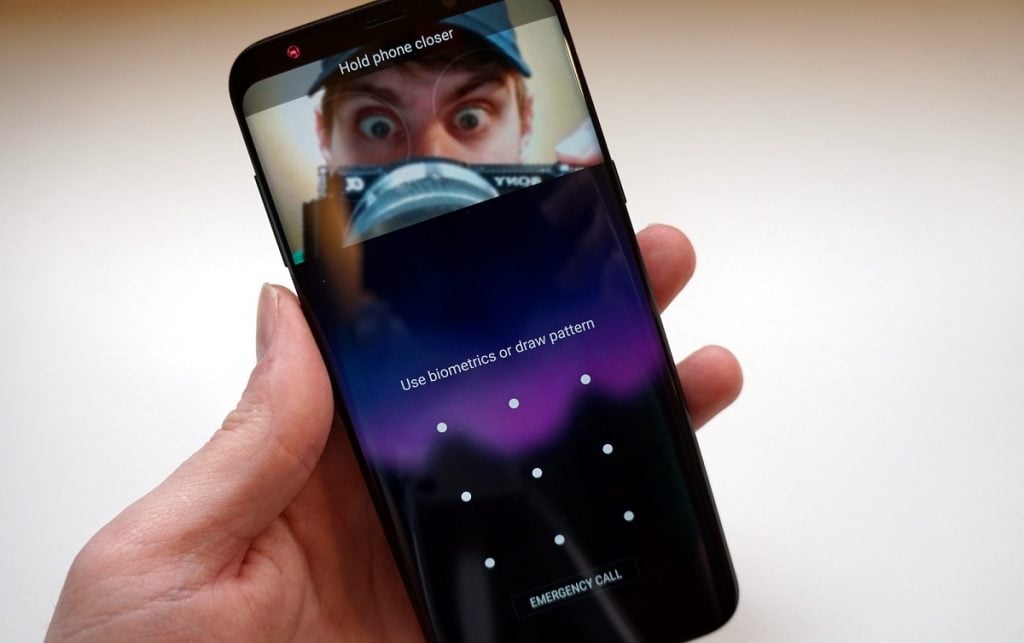Intelligent Scan of Samsung Galaxy S9 is faster than others but not secure, security researchers says. The latest star in the flagship category Samsung’s Galaxy S9 and S9+ offer the company’s substitute to Apple’s Face ID called “Intelligent Scan”. The company claimed that its latest feature is a combination of “iris scanning, facial-recognition and intelligent technologies to make a seamless biometric security solution” fast and secure at the same time.
But the shocking news is Security researchers believe that the system is absolutely faster except not any more secure.
Here’s how Samsung explains its enhanced and improved version of authentication system:
In order to allow users to unlock their device and to give a right of entry to protected content with just a glance, Samsung S9 is going to use Intelligent Scan. It is a profound learning-based verification key that uses collective strength of the Galaxy S9’s iris scanning and facial recognition technologies.
The system works by cautiously examining your face’s detectable features, and the lighting conditions of your surroundings, to determine the optimal verification method to open your phone. The multimodal approach of Intelligent Scan allows it to make sure that biometric authentication take place effectively in virtually any environment.
In a process to unlock your phone, Samsung Galaxy S9 starts with a face scan, if that fails, then device will move on to your irises and if that fails too, then it will attempt to unlock with a combination of the above two. While all of this happens really fast, the outcome is a faster scan than lots of other alternatives.
Must Read: Samsung Galaxy S9 might be the first phones to get Android P update
In other words, if a piece of clothing or an accessory is hiding part of your face and you you’re wearing a veil then Intelligent Scan should still be capable to get you in as it’s not reliant on your facial features only.
So Galaxy S9’s Intelligent Scan authentication system is faster but it isn’t secure? How?
Samsung’s Intelligent Scan utilizes the regular camera to create a 2D map, as it still remains to be seen if the camera can be deceived with a printed photo. It is different from Apple’s Face ID that creates a 3D scan of your face using an infrared camera, a dot projector, and a depth sensor.
On the other hand, at least the security researcher who initially fooled Galaxy S8’s Iris Scan with just a photo and contact lens doesn’t seem to be interested.
“There is no fun in hacking just a new release of the same system.”
At the same time, Apple’s Face ID isn’t an ideal and most secure way out; Samsung still appears to be following the Cupertino tech giant although it was the opening player to come up with a facial recognition system in market of smartphones.
“They want to provide some level of security but also make it easy and effective for you to get into the phone,” Andrew Blaich, a researcher with security company Lookout, said.
“This is probably trying to play catch-up with how smooth the user experience is for the iPhone.”
It is important to mention here that the Korean tech giant particularly says that this solution is for just face unlocking and cannot be used to “authenticate access to Samsung Pay” most likely confirming it’s not the safest way to protect your Galaxy S9.
Furthermore, Samsung also seems to deem that Galaxy S9 iris scanning is more protected way to unlock your phone because it simply use either iris or both iris and face, which allows you to verify apps like Samsung Pass.




